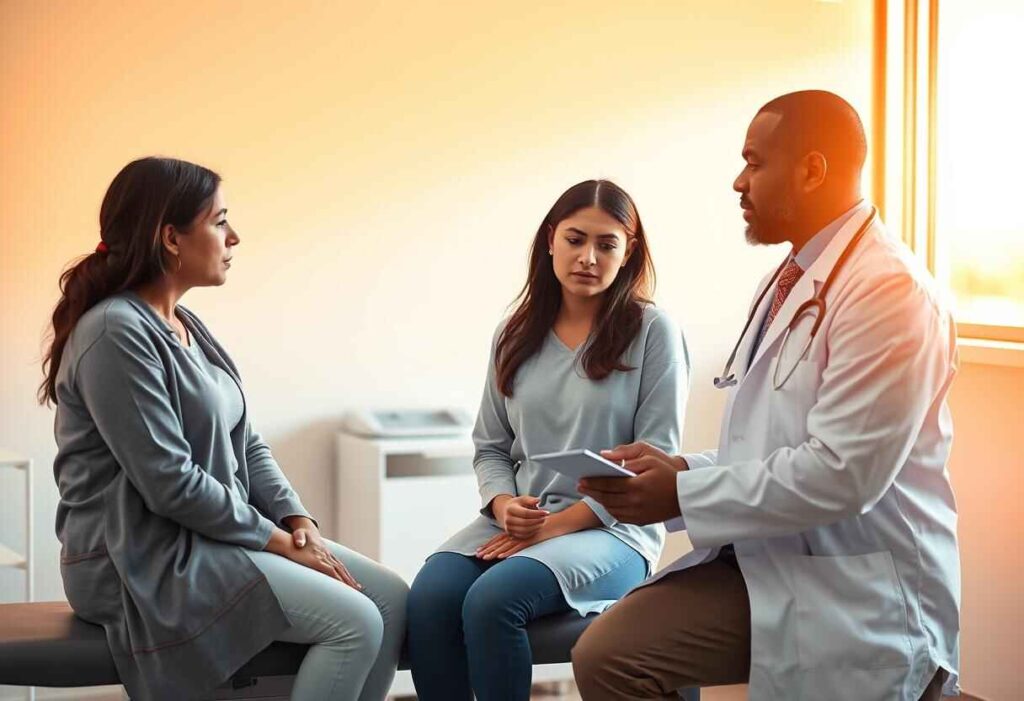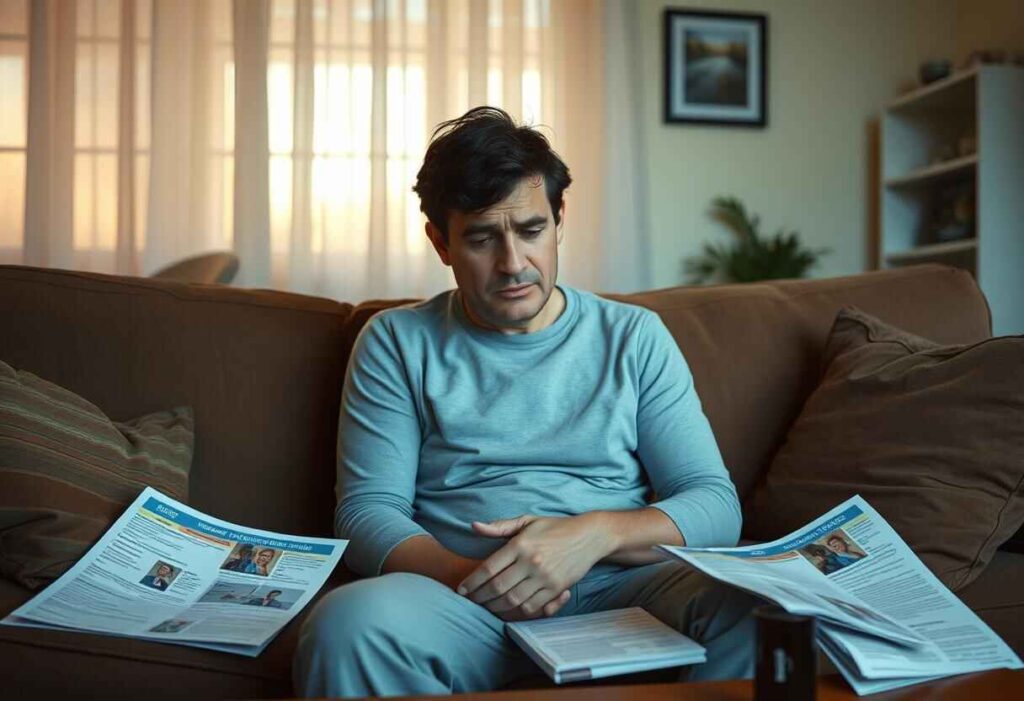Have you ever felt really tired, even after sleeping well? Or maybe you’ve had moments of feeling dizzy and unsteady. These are common feelings, but sometimes they can be caused by a health problem you might not expect—like gallstones.
Here’s what happens: gallstones don’t directly make you tired or dizzy. But they can cause other issues in your body that lead to these feelings. Let’s take a closer look at how gallstones might be linked to feeling tired or dizzy.
Understanding Your Gallbladder
Picture a small pouch nestled beneath your liver. That’s your gallbladder. It holds bile, a helpful juice made by your liver. Bile helps digest fats in your gut. When you have a fatty meal, your gallbladder releases bile to help with digestion.

The Problem with Gallstones
At times, cholesterol and other stuff in bile can get hard and turn into gallstones, which are like small rocks in your gallbladder. These stones can cause trouble in two main ways:
- Blocking: Gallstones might block the bile duct, stopping bile from moving smoothly to your intestines. This can cause digestion issues, pain, and discomfort, particularly after eating fatty foods.
- Inflammation: When the bile duct gets blocked, it can irritate and swell the gallbladder and nearby tissues. This swelling, called cholecystitis, can be very painful.
| Problem | Description | Symptoms | Possible Causes | Recommended Solutions | Additional Notes |
| Biliary Colic | Pain resulting from a gallstone blocking a bile duct temporarily. This type of pain is usually intermittent. | – Severe, cramp-like pain in the upper right abdomen. | Gallstones blocking the bile ducts, often after eating fatty foods. | – Use pain relievers as prescribed. | If pain is severe or persistent, seek medical attention for further evaluation and treatment. |
| – Pain that may radiate to the back or shoulder. | – Avoid trigger foods. | ||||
| – Nausea or vomiting. | – Apply heat to the affected area. | ||||
| Cholecystitis | Inflammation of the gallbladder, often due to a gallstone obstructing the cystic duct. | – Severe, persistent pain in the upper right abdomen. | Infection or inflammation caused by a blocked cystic duct. | – Antibiotics for infection. | Immediate medical attention is necessary to avoid complications such as gallbladder rupture. |
| – Fever. | – Pain management. | ||||
| – Nausea and vomiting. | – Surgery (cholecystectomy) may be required for persistent cases. | ||||
| – Jaundice (yellowing of skin). | |||||
| Choledocholithiasis | Presence of gallstones in the common bile duct, which can lead to blockage of bile flow. | – Jaundice. | Gallstones migrating from the gallbladder into the common bile duct. | – Endoscopic retrograde cholangiopancreatography (ERCP) to remove stones. | Blockage of bile flow can lead to serious liver problems if not addressed promptly. |
| – Dark urine. | – Possible surgery if ERCP is not effective. | ||||
| – Pale stools. | |||||
| – Abdominal pain. | |||||
| – Fever. | |||||
| – Itching. | |||||
| Pancreatitis | Inflammation of the pancreas, which can occur if a gallstone blocks the pancreatic duct. | – Severe abdominal pain that radiates to the back. | Gallstones blocking the pancreatic duct, leading to inflammation. | – Hospitalization for intravenous fluids and pain management. | Chronic pancreatitis can develop if not treated effectively. |
| – Nausea and vomiting. | – Treatment of underlying gallstone problem. | ||||
| – Fever. | – Surgery if needed. | ||||
| – Rapid pulse. | |||||
| Gallbladder Cancer | A rare but serious condition that may develop in people with long-standing gallstones or chronic inflammation. | – Persistent abdominal pain. | Long-standing inflammation or infection of the gallbladder. | – Surgical removal of the gallbladder and cancerous tissues. | Early detection is crucial for better outcomes; regular follow-up with healthcare provider is important. |
| – Weight loss. | – Chemotherapy or radiation therapy may be required. | ||||
| – Jaundice. | |||||
| – Loss of appetite. | |||||
| – Nausea. | |||||
| Jaundice | Yellowing of the skin and eyes caused by excess bilirubin in the blood, often due to a blocked bile duct. | – Yellowing of skin and eyes. | Blockage of the bile duct due to gallstones. | – Treat underlying cause (e.g., gallstone removal). | Jaundice often indicates a significant issue with bile flow and requires prompt medical attention. |
| – Dark urine. | – Address symptoms with supportive care. | ||||
| – Pale stools. | – Monitoring of liver function. | ||||
| – Itching. |
Can Gallstones Make You Tired and Dizzy?
While tiredness and dizziness are not the most common symptoms of gallstones, they can happen because of the overall impact gallstones have on your body. Here are some ways gallstones might cause these feelings:
Pain and Stress Response
- Gallstones can cause severe pain, especially during a gallbladder attack. This pain can be exhausting and stressful.
- Chronic pain and stress can lead to fatigue as your body tries to manage the constant discomfort.
The stress response releases cortisol and adrenaline, which can drain your energy if prolonged, leading to tiredness.
Sleep Disturbances
- Gallstone pain often gets worse at night, disrupting sleep.
- Poor sleep or lack of sleep because of pain can result in daytime fatigue and dizziness.
- Good sleep is essential for restoring energy, and disruptions can affect overall energy levels and mental clarity.

Digestive Issues and Nutrient Absorption
- Gallstones can cause digestive problems, making it hard for your body to absorb nutrients properly.
- Poor nutrient absorption can lead to deficiencies in essential vitamins and minerals, causing fatigue and dizziness.
- For example, iron deficiency can cause anemia, which is known for causing tiredness and lightheadedness.
Biliary Obstruction and Infections
- If gallstones block the bile ducts, it can cause inflammation and infections like cholecystitis (gallbladder inflammation) or cholangitis (bile duct infection).
- These conditions can cause systemic symptoms like fever, chills, and general unwellness, often accompanied by fatigue.
- Severe infections can lead to sepsis, a life-threatening condition causing extreme fatigue and dizziness due to inflammation and low blood pressure.
Impact on Liver Function
- Gallstones can block the flow of bile, affecting liver function.
- This can cause a build-up of bilirubin and other substances in the blood, leading to jaundice and feeling unwell.
- Impaired liver function can cause a build-up of toxins in the body, contributing to fatigue and dizziness.
Coping with Gallstones: Dealing with Pain and Tiredness
If you have gallstones, here’s how you can manage them and reduce fatigue and dizziness:
- Eat Healthier: Cut down on fatty foods to avoid gallbladder problems. Choose foods like lean meats, fruits, veggies, and whole grains.
- Keep a Healthy Weight: Being overweight raises your chances of getting gallstones. Try to lose weight gradually by eating well and exercising.
- Medication: Sometimes, your doctor may give you medicine to dissolve gallstones or relax your gallbladder muscles.
- Surgery: If other treatments don’t work, you might need surgery to remove your gallbladder. It’s called a cholecystectomy.
Here’s a table to help with coping with gallstones, focusing on managing pain and tiredness:
| Aspect | Description | Recommended Actions | Additional Notes |
| Understanding Gallstones | Gallstones are small, hardened deposits of bile that can form in the gallbladder. They can vary in size and may cause symptoms or be asymptomatic. | – Consult a healthcare provider for accurate diagnosis. | Knowing the type of gallstones can help in tailoring treatment and management strategies. |
| – Learn about the types of gallstones (cholesterol or pigment). | |||
| Pain Management | Pain from gallstones typically occurs in the upper right abdomen and can radiate to the back or shoulder. Pain may be intermittent or constant. | – Use prescribed medications (pain relievers, anti-inflammatory medication). | Avoid over-the-counter painkillers that could exacerbate symptoms. |
| – Apply heat packs to the affected area. | |||
| Dietary Adjustments | Certain foods can trigger or worsen gallstone pain. A diet high in fat can lead to discomfort. | – Follow a low-fat, high-fiber diet. | Drinking plenty of water and eating fruits and vegetables can help manage symptoms. |
| – Eat smaller, more frequent meals. | |||
| – Avoid fried and fatty foods. | |||
| Fatigue and Tiredness | Chronic pain and discomfort from gallstones can lead to fatigue and general tiredness. | – Ensure adequate rest and sleep. | Managing stress and staying hydrated can also help reduce feelings of fatigue. |
| – Engage in light, non-strenuous activities. | |||
| – Consider short naps if needed. | |||
| Lifestyle Changes | Incorporating certain lifestyle changes can alleviate symptoms and improve overall well-being. | – Maintain a healthy weight. | Regular check-ups with a healthcare provider are essential for monitoring and managing the condition effectively. |
| – Exercise regularly. | |||
| – Avoid smoking and limit alcohol consumption. | |||
| Medical Interventions | In some cases, medical interventions may be necessary, especially if symptoms are severe or persistent. | – Discuss options such as medications to dissolve stones or surgical procedures like cholecystectomy (gallbladder removal). | Surgery is typically considered if gallstones cause significant symptoms or complications. |
| Monitoring and Follow-Up | Regular monitoring is crucial for managing gallstones and associated symptoms. | – Keep track of symptoms and any changes. | Early detection of complications can prevent more serious issues. |
| – Schedule follow-up appointments with your healthcare provider. |
Signs and Symptoms of Gallstones
If you suddenly feel intense pain in the upper right abdomen or middle of your stomach, it might be a gallbladder attack. This pain can last from a few minutes to a couple of hours and can be really strong.
Other Symptoms of Gallstones:
If you have gallstones and don’t get treatment, you might experience:
- Faster heartbeat
- Pain in your back between your shoulder blades
- Fever or chills
- Yellowish skin or eyes (jaundice)
- Urine that looks like tea and pale-colored stools
- Feeling nauseous and throwing up
Because these symptoms could mean your gallbladder has a serious infection or inflammation, it’s important to contact a doctor who specializes in digestive health right away.
Conclusion
While feeling tired and dizzy isn’t common with gallstones, they can happen because of the pain, inflammation, and nutrient problems they cause. If you have these symptoms, especially with upper belly pain, see your doctor. Getting diagnosed and treated early is important for managing gallstones and feeling better.

